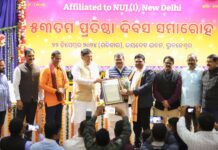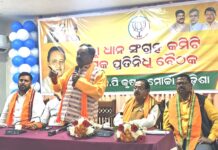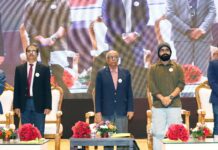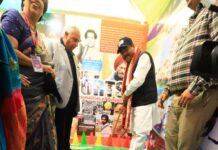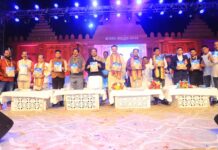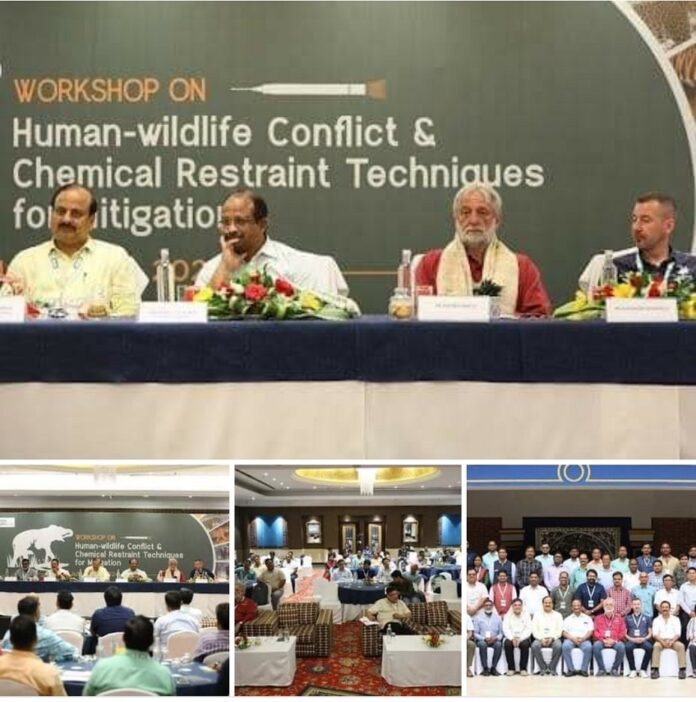By Our Correspondent
BHUBANESWAR: Though the state of Odisha is home to rich biodiversity, it is witnessing conservation challenges in the form of acute human-wildlife conflict. These conflicts manifest in various forms of wildlife related depredation like human kill, human injury, house damage, crop damage and livestock depredation. In last five years the state has faced 785 human death cases, 1866 human injury cases, 1035 cattle kill cases, 10259 house damage cases & 243733 crop damage cases due to wildlife depredations.
Therefore, the Odisha Forest Department is organizing an advanced training programme first of its kind in India on “Human Wildlife Conflict Mitigation through Chemical Restraint Techniques” from 26.07.2024 to 31.07.2024 for emerging Veterinary Professionals and Forest Officials facing Human-Wildlife conflict situations on a regular basis.
The training programme is being jointly organized by Odisha Forest Department in collaboration with Wildlife Institute of India, Dehradun & Wildlife Pharmaceuticals, South Africa. The training has been inaugurated on Friday .
Shri Debidutta Biswal, IFS, PCCF & HoFF, Odisha was Chief Guest, Shri Susant Nanda, IFS, PCCF & CWLW, Odisha as Guest of Honor, Dr. Cobus Raath, Managing Director, Wildlife Pharmaceuticals as Guest of Honor, Dr. Aleksander Semjonov, Chief Clinical Officer, Anesthesiology & Wild Animal Medicine, Estonian University of Life Sciences as Guest of Honor, Dr. Parag Nigam, Scientist G & HoD, Dept. of Wildlife Health Management, WII as a guest, Dr. Bivash Pandav, Scientist G & HoD, WII as a guest and Dr. Manoj V Nair, IFS, CCF (Wildlife) & Director, Nandankanan, Odisha.
The New Generation immobilization & sedation medicines were developed to provide field-tested immobilization anesthesia options to immobilize a broad range of wild animal species. They provide superior pain relief and muscle relaxation that can be injected or ingested for rapid absorption.
The resource persons of this training programme are highly competent in the handling of Chemical immobilization technique through new generation immobilization & sedation drugs. Dr Cobus Raath qualified with a BVSc degree has spent the first 11 years of his career as the Head veterinarian for SANParks, stationed in Kruger National Park. After leaving SANParks Dr. Raath registered Wildlife Pharmaceuticals (Pty) Ltd in 1997.
Today, Dr Raath remains actively involved in the wildlife veterinary industry, dedicating his expertise and time to numerous research projects and sharing his knowledge and skills with veterinarians around the world by hosting wildlife immobilization courses. Dr Aleksandr Semjonov is currently Chief Clinical Officer, Chair of Clinical Veterinary Medicine and head of the University’s Animal Clinic at the Estonian University of Life Sciences.
Dr Semjonov also works as a practicing anesthesiologist for zoo and wild animals around the world & has broad clinical and scientific experience in longterm anesthesia of wild carnivores, giraffes and elephants. Dr Semjonov has collaborated scientifically with research institutions in Europe, South Africa, Russia, India and Japan. Dr. Bivash Pandav works at the Department of Endangered Species Management, Wildlife Institute of India (WII), Dehradun.
He has been studying tigers and their prey in the Indian Terai since 2003. Also, Dr. Parag Nigam has a specialization in Wild animal capture and restraint; disease dynamics and management; health management of captive populations. He has carried out carried out a number of wildlife rescue and rehabilitation operations for various states of the country.
The week long training with detailed specific technical sessions is intended to equip the Sanctuary Managers and Veterinarians working in PAs & Zoos across state of Odisha with the necessary skills and knowledge to efficiently and effectively handle exigencies that may arise due to human-wildlife conflict. The training would be more practical with tranquilization and sedation in the field.




